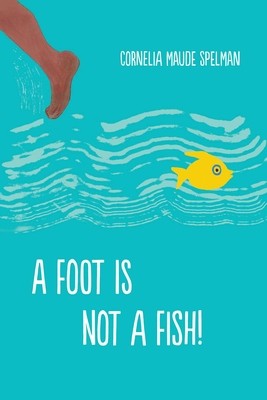
- We will send in 10–14 business days.
- Author: Cornelia Maude Spelman
- Publisher: Frederator
- ISBN-10: 1627261370
- ISBN-13: 9781627261371
- Format: 14.8 x 22.4 x 0.4 cm, minkšti viršeliai
- Language: English
- SAVE -10% with code: EXTRA
Reviews
Description
In a time of alternative facts and the loss of a shared sense of reality, A Foot is Not a Fish playfully illustrates the difference between a wish and what is true through absurd fun comparisons that every child - and parent -- will instantly understand. One of our important responsibilities as parents, grandparents, and teachers is to reinforce and support our children's perceptions of reality, and to strengthen their ability to distinguish what is real, true, and provable from what is belief or opinion or wish. They do learn, naturally, as they grow from babyhood, what is real and true; they delight in recognizing that a story or a game is "pretend," and are quick to object when someone else says something that they recognize is "not true!" This book aims to playfully illustrate common and observable truths by making absurd comparisons: "a foot is not a fish." It aims to show that it is not hard to see what is true, and it also tries to establish that, to make sense of our mutual world, agreement about what is true is necessary. What if some of us thought that a foot was a fish? Children understand that while different people have different beliefs and opinions--such as about religion, or what is good to eat--they also understand that beliefs and opinions are not the same as facts, such as what is "night" or "day." Reality cannot be changed by simply saying the opposite of what is true: "we can't just say that red is green." Children also understand that there is a difference between a wish and what is true. They understand, once they are past toddlerhood, that we cannot change the truth just by wishing or hoping: "a wish is just a wish." They know that, although they might wish it to be so, every day cannot be their birthday. Encouraging children to create their own verses (rhyming or not) can be fun, and can further help them in their understanding of what is real and what is not. They undoubtedly will come up with surprising and funny examples of their own. A________ is not a _________!- Author: Cornelia Maude Spelman
- Publisher: Frederator
- ISBN-10: 1627261370
- ISBN-13: 9781627261371
- Format: 14.8 x 22.4 x 0.4 cm, minkšti viršeliai
- Language: English English


Reviews